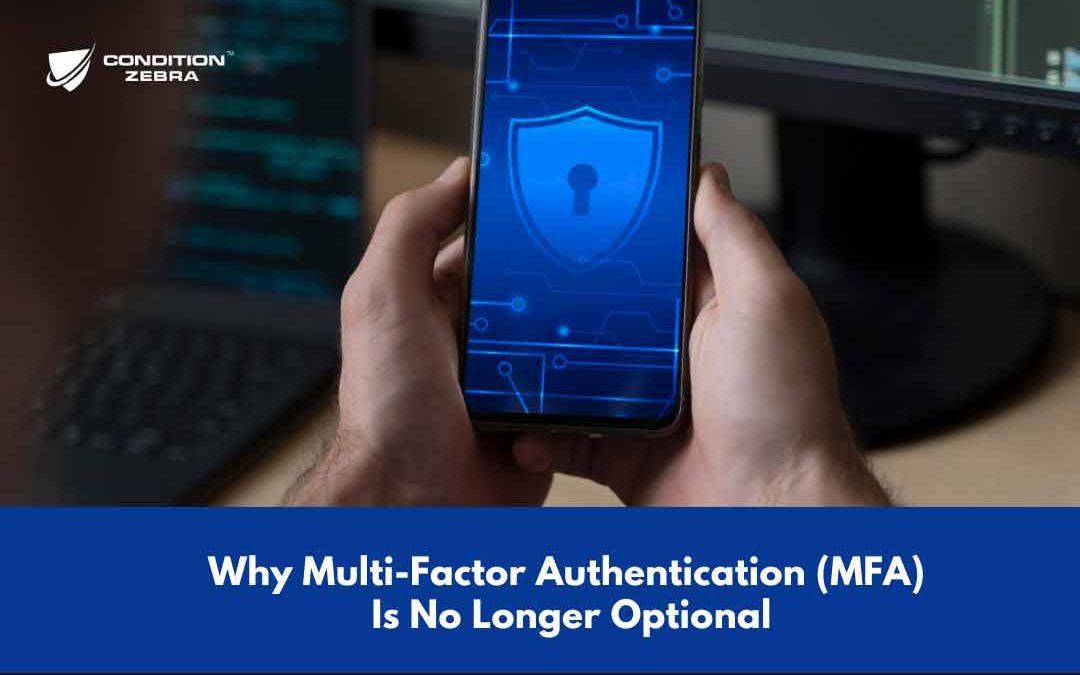Cyber criminals are getting smarter every day, and stolen or weak passwords remain one of the top reasons why organizations fall victim to attacks.
In Malaysia, data breaches have surged in recent years, with MyCERT reporting a 29% increase in breach incidents in early 2025. Relying only on passwords is no longer enough to protect your business. That’s why Multi-Factor Authentication (MFA) is now considered a must-have security layer, not just an optional feature.
What Is Multi-Factor Authentication (MFA)?
MFA is a security method that requires users to verify their identity using two or more factors before accessing systems, accounts, or applications.
The factors usually include:
- Something you know – password or PIN
- Something you have – phone, hardware token, or smart card
- Something you are – fingerprint, face scan, or other biometrics
Even if attackers manage to steal your password, they cannot log in without the second factor.
Modern MFA solutions also include:
- Push Notifications – quick approvals on mobile apps.
- Hardware Security Keys (e.g., YubiKey, FIDO2) – resistant to phishing.
- Adaptive MFA – adjusts verification based on user location, device, or behavior.
Why Passwords Alone Are Not Enough
Passwords remain the weakest link in cybersecurity.
- Weak passwords remain common – many employees still reuse them, making it easy for attackers to guess or steal.
- Phishing attacks – Hackers trick users into handing over credentials.
- Data breaches – Password leaks from one service can unlock business systems.
In Malaysia, compromised credentials are frequently exploited in fraud cases and phishing scams. Depending on passwords alone leaves organizations exposed to unnecessary risk.
Real-World Cases in Malaysia
Bursa Malaysia Breach (2025)
In April 2025, unauthorised trades were carried out on about 80 accounts linked to Bursa Malaysia. After investigations, the exchange directed all participant organisations to implement multi-factor authentication by year-end to prevent recurrence. This shows how MFA is being mandated as a direct response to real-world threats in the financial sector.
Banking Fraud via Malicious Apps
Cybercriminals have distributed fake apps like “Cleaning Service Malaysia” to steal banking credentials and even intercept SMS one-time passwords (OTPs). This highlights the weakness of SMS-based MFA and the need for stronger methods such as authenticator apps or hardware tokens.
Malaysian Banks Blocking Fraud (2023)
In 2023, local banks successfully blocked RM383 million worth of fraudulent transactions through enhanced security controls, including stricter authentication processes. While not always publicly credited as “MFA,” these measures align with MFA principles like device verification and stronger login approvals.
Proactive Adoption: Xylem Malaysia
Xylem Malaysia has made MFA mandatory for employee access to internal applications and is phasing out weaker MFA methods like SMS and email. This is an example of a company strengthening its defenses before a major incident occurs.
Benefits of MFA for Businesses
- Stronger Security – Stops attackers from accessing accounts even if passwords are compromised.
- Regulatory Compliance – Required in industries like banking, healthcare, and government.
- Reduced Impact of Phishing – Even if users fall for phishing, the stolen password alone is useless.
- Builds Trust – Customers and partners feel safer when your systems have stronger protections.
Best Practices for MFA Implementation
- Enforce MFA on all critical systems – including email, VPN, financial tools, and cloud applications.
- Choose secure methods – use app-based or hardware tokens instead of SMS codes.
- Educate employees – explain why MFA matters and how to use it effectively.
- Review regularly – monitor adoption rates and update policies against new threats.
- Balance security and convenience – combine MFA with Single Sign-On (SSO) to reduce login fatigue.
Common Mistakes to Avoid
- Relying only on SMS OTPs, which are vulnerable to SIM swapping and malware.
- Failing to apply MFA for privileged accounts such as administrators.
- Ignoring third-party applications and integrations.
- Overcomplicating the process, which frustrates users and reduces adoption.
MFA is one of the most effective and affordable defences against cyber attacks. By enabling MFA across all critical systems, your organisation can reduce cyber risks, protect sensitive data, and maintain the trust of customers and partners.
At Condition Zebra, we provide a quick security health check to ensure your critical accounts are properly protected with MFA and other safeguards.
👉 Book a free consultation with our cybersecurity experts today.

